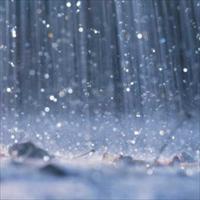NAMIBIA: Too much rain is as bad as too little

Floodwater caused by heavy rains in Namibia's northern and northeastern regions has brought an outbreak of cholera, and is also being blamed for a lower than expected cereal harvest for 2008.
The Namibian government declared a state of emergency on 5 March, while the UN Children's Fund (UNICEF) said in its situation report on 13 March that conditions in the affected regions were "worsening": 72 cases of suspected cholera have been reported, of which 4 were confirmed and one was fatal.
Cholera is a gastrointestinal disease typically spread by drinking contaminated water and can cause severe diarrhoea, leading to fatal dehydration in extreme cases. It can be prevented by treating drinking water with chlorine added, and by improving hygiene conditions.
"The increased floodwaters have submerged pit latrines and overflowed the sewerage system. We are anticipating an increase in cholera cases and other waterborne diseases," UNICEF said.
A report by the Namibia Early Warning and Food Information System (NEWFIS), released on 10 March, noted that "heavy and constant rains received between mid-January and early February 2008, especially in the North Central and Caprivi regions, have resulted in waterlogging and leaching, and leads to poor germinations and stunted growth [of crops]."
The NEWFIS crop assessment mission was conducted between 4 February and 20 February in the country's main agricultural regions in the north, and included Caprivi, Kavango, Omusati, Ohangwena, Oshana and Oshikoto, with forecasts made on the assumption that normal weather conditions would prevail for the remainder of the season.
On that basis, NEWFIS forecast Namibia's aggregate cereal production at 138,600 tonnes, "a slight improvement of about 10 percent on a relatively poor 2006/07 harvest".
"However, if flood and unfavourable rains continue for the remainder of the season, harvest prospects are likely to be significantly reduced," the NEWFIS Crop Prospects and Food Security Situation report cautioned.
The 2007/08 agricultural season was delayed in most crop-producing regions, due to "inadequate and sporadic rainfall, coupled with prolonged dry spells in the north central regions during October to December 2007."
Army worms
The constant heavy rain during and up to the NEWFIS assessment had also caused an outbreak of army worms in the Oshana and Oshikoto regions, posing "a major threat to crops and pasture that are recovering from a recent drought," the crop prospect report said.
Army worms, scientifically known as spodoptera exempata, devour all green plants in their path and breed prolifically, making them difficult to control.
NEWFIS said household food security in the Kavango region, on the border with Angola, "has deteriorated significantly", while in Caprivi most households were reported to have "depleted their food stock since January 2008 and are now market dependents, as it is the case with Kavango region."
The harvest prospects in Caprivi, known as the region's "green basket", were seen as poor "due to flooding". Namibia's weather service has forecast more rain in the affected regions.
 Back and Next - Back and Next
Back and Next - Back and Next See Also - See Also
See Also - See Also